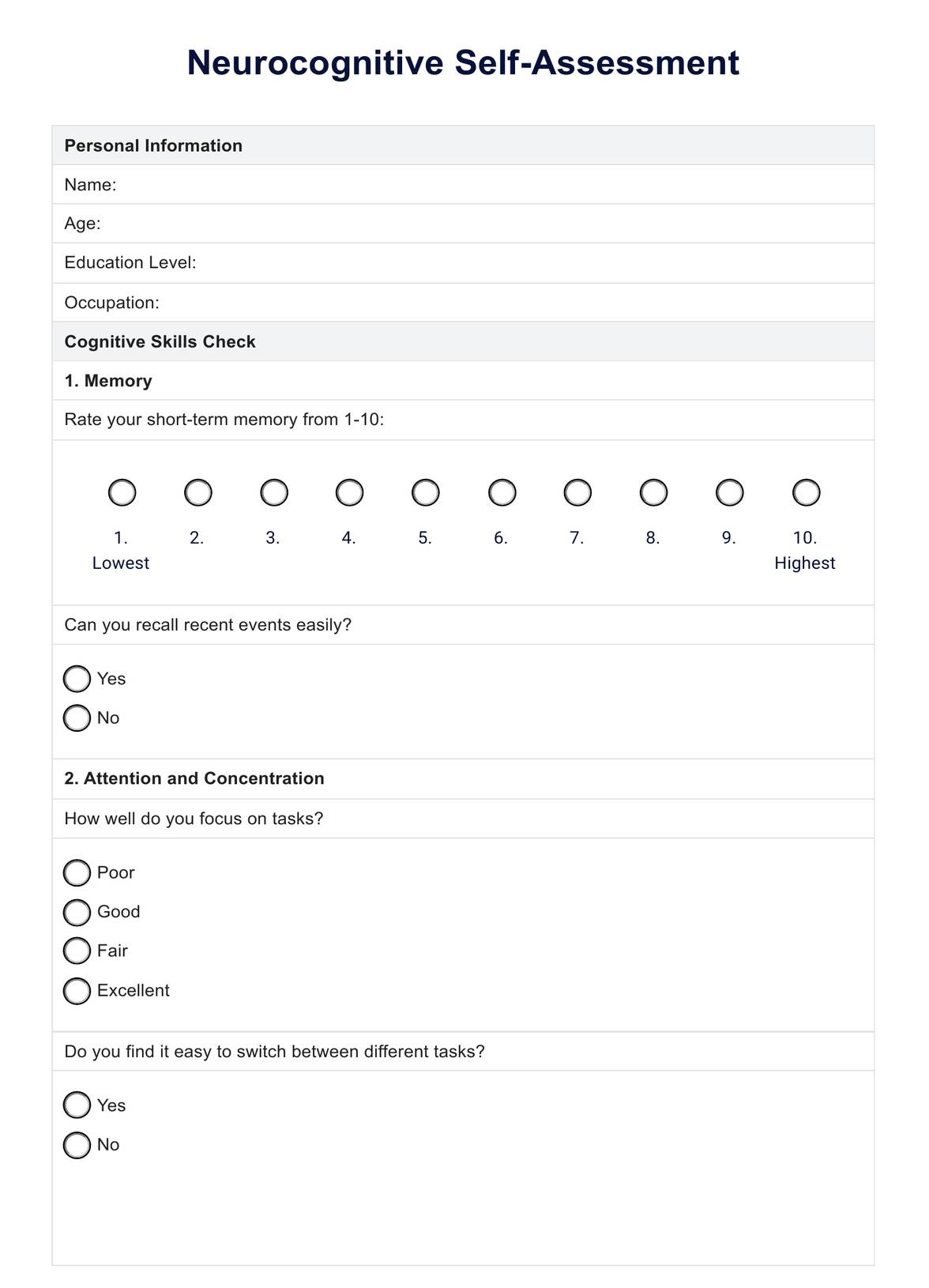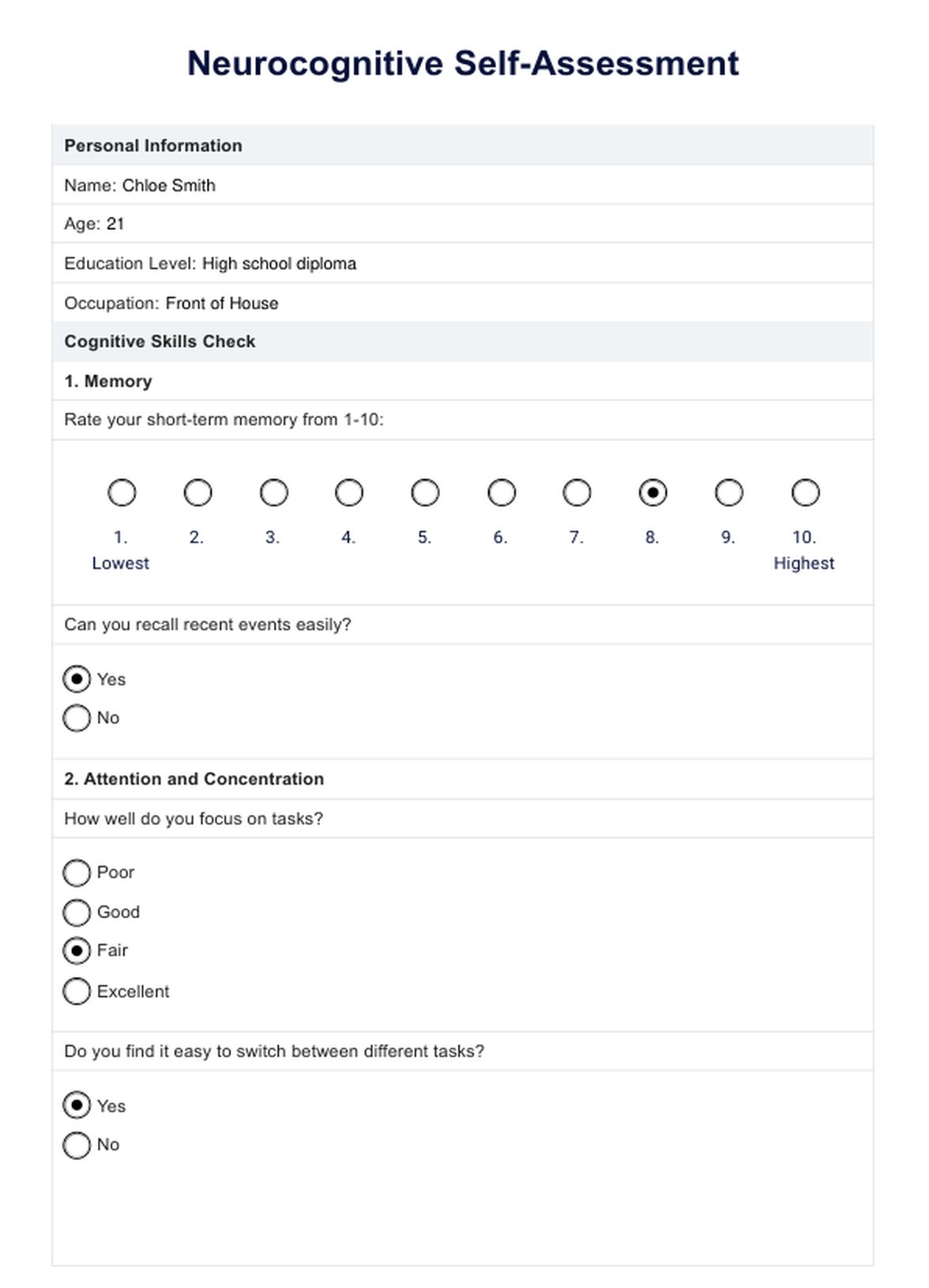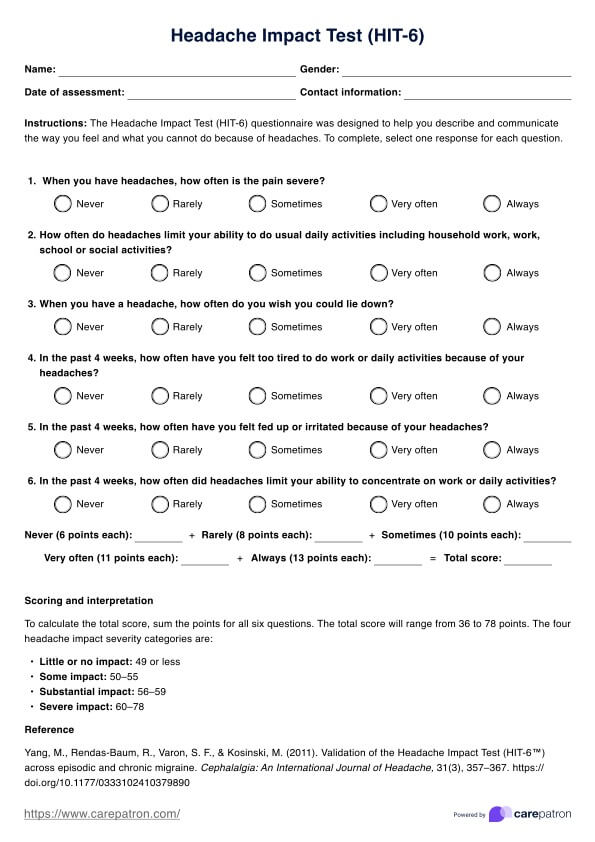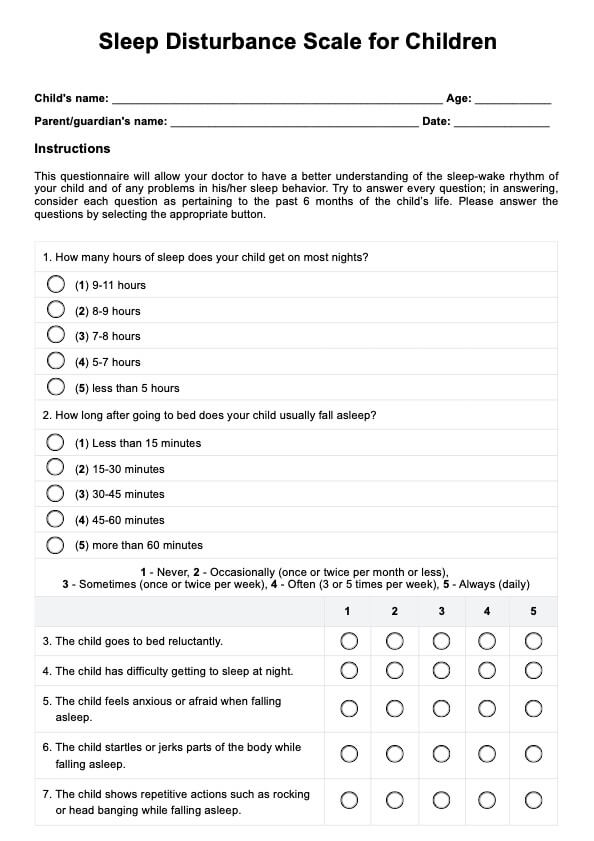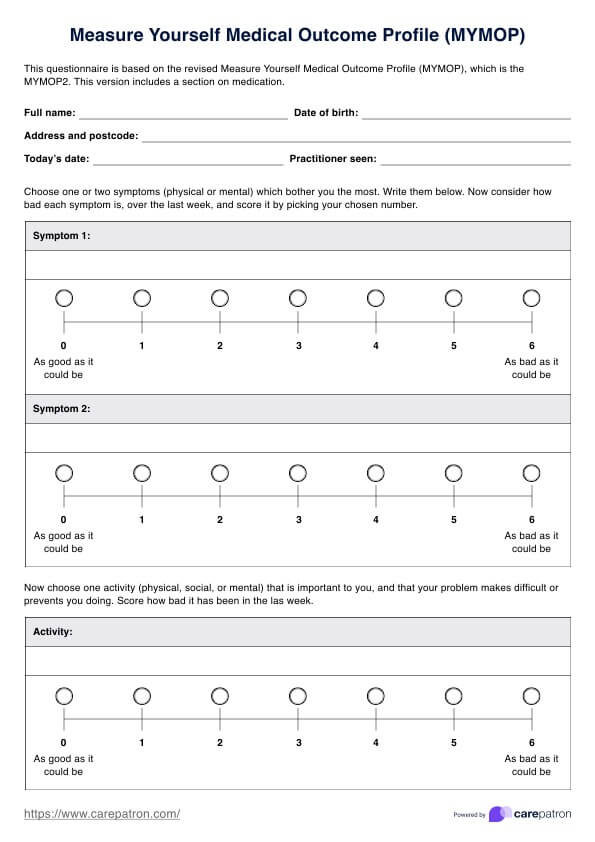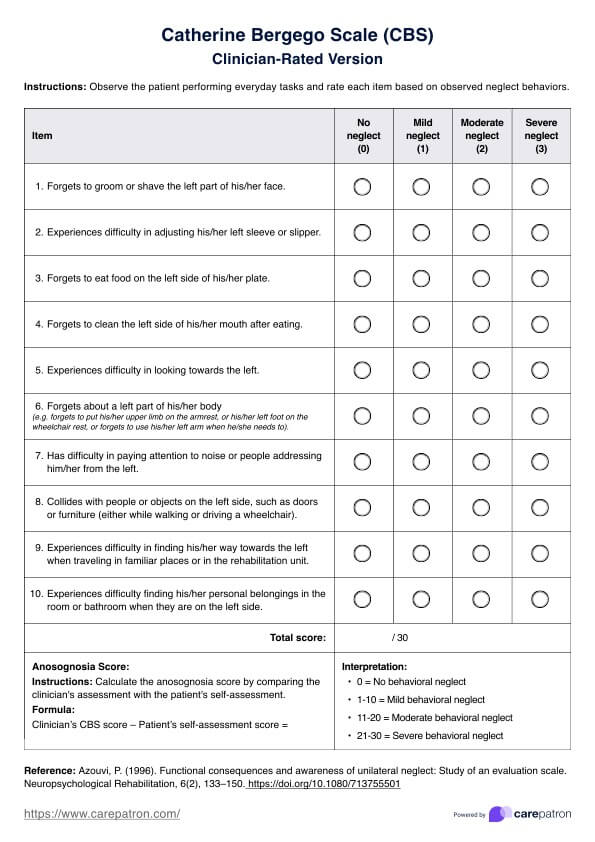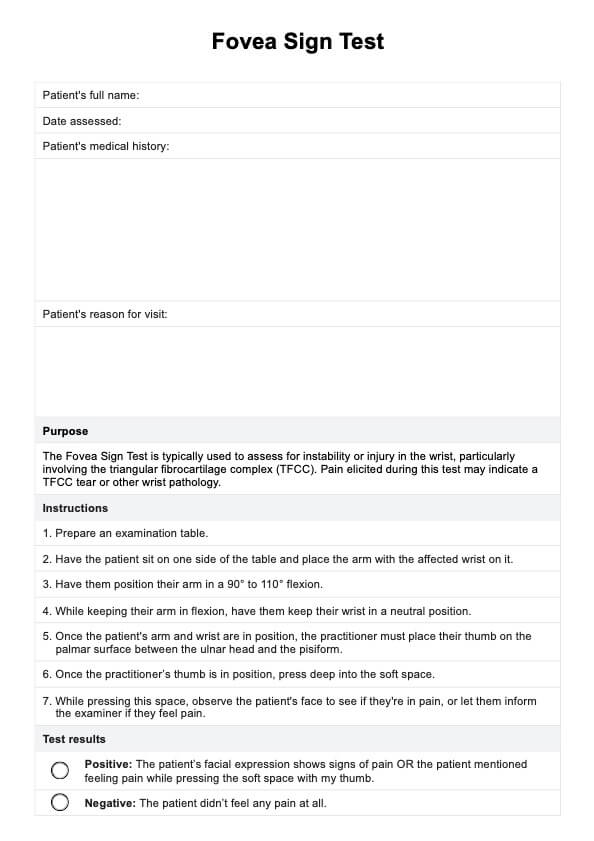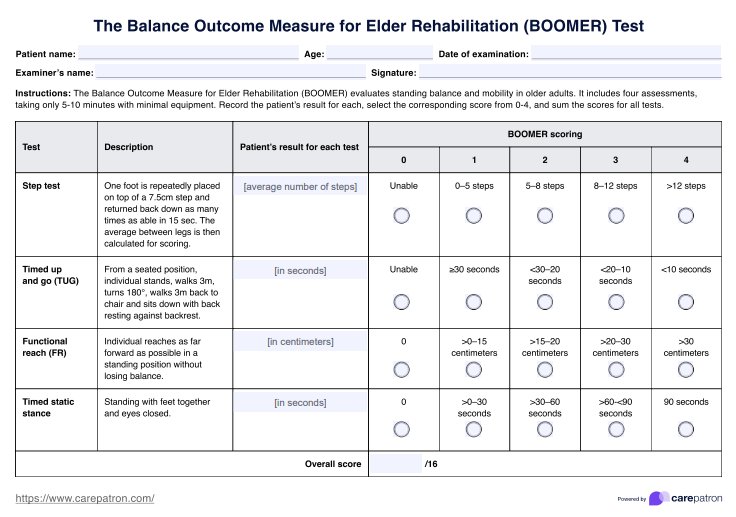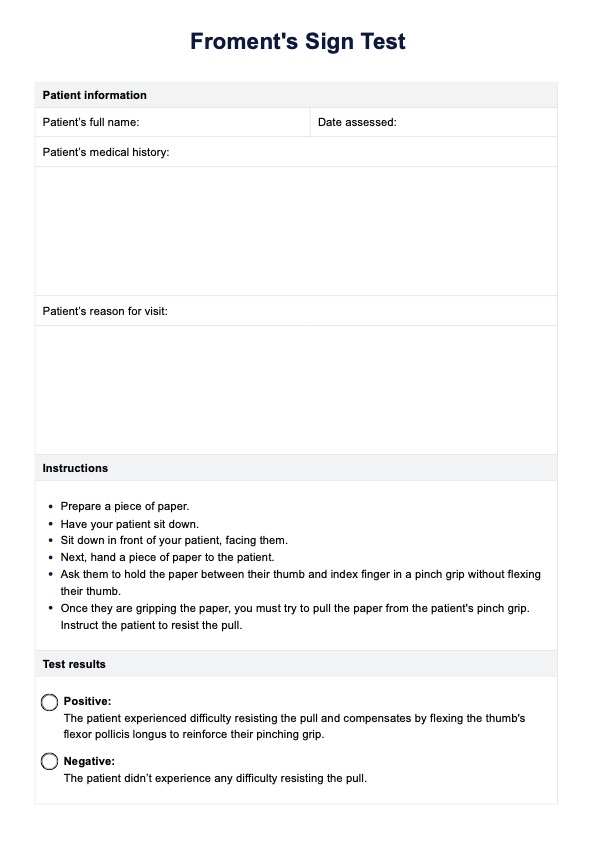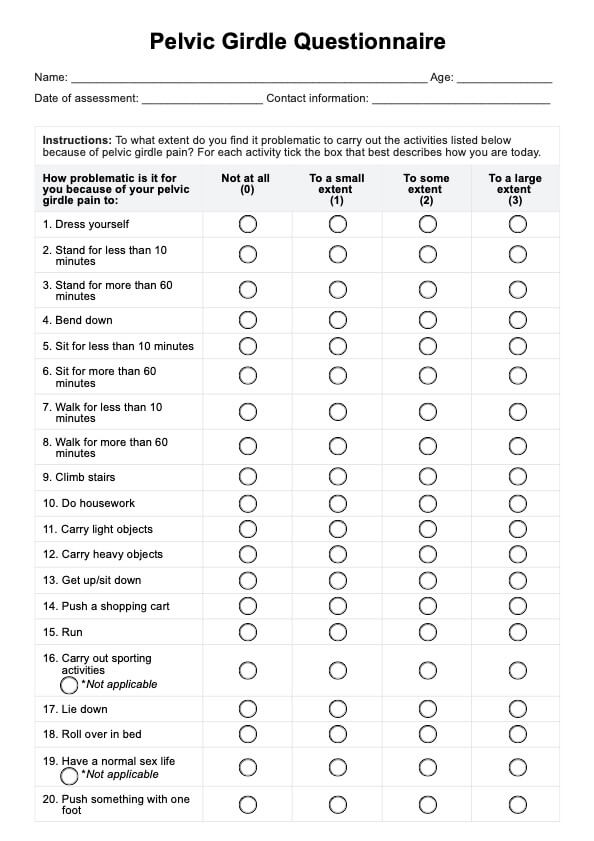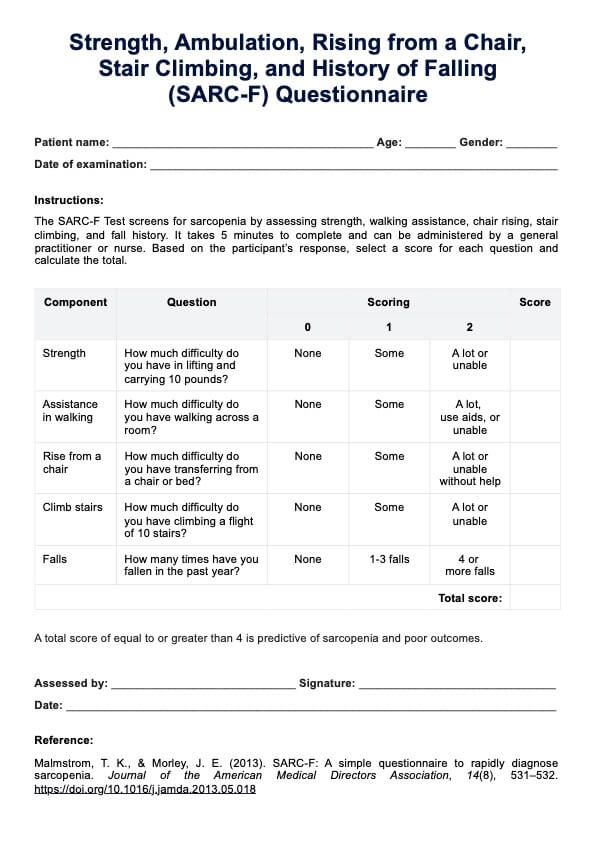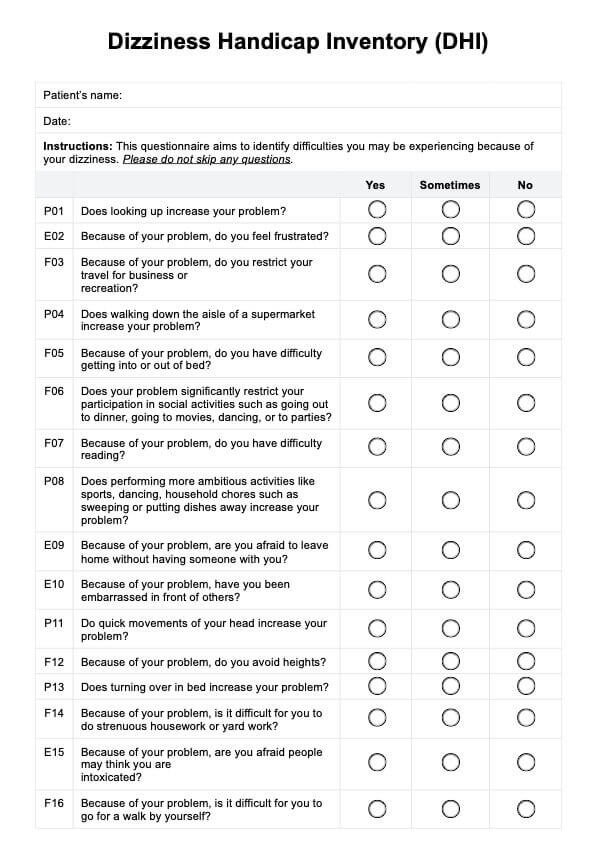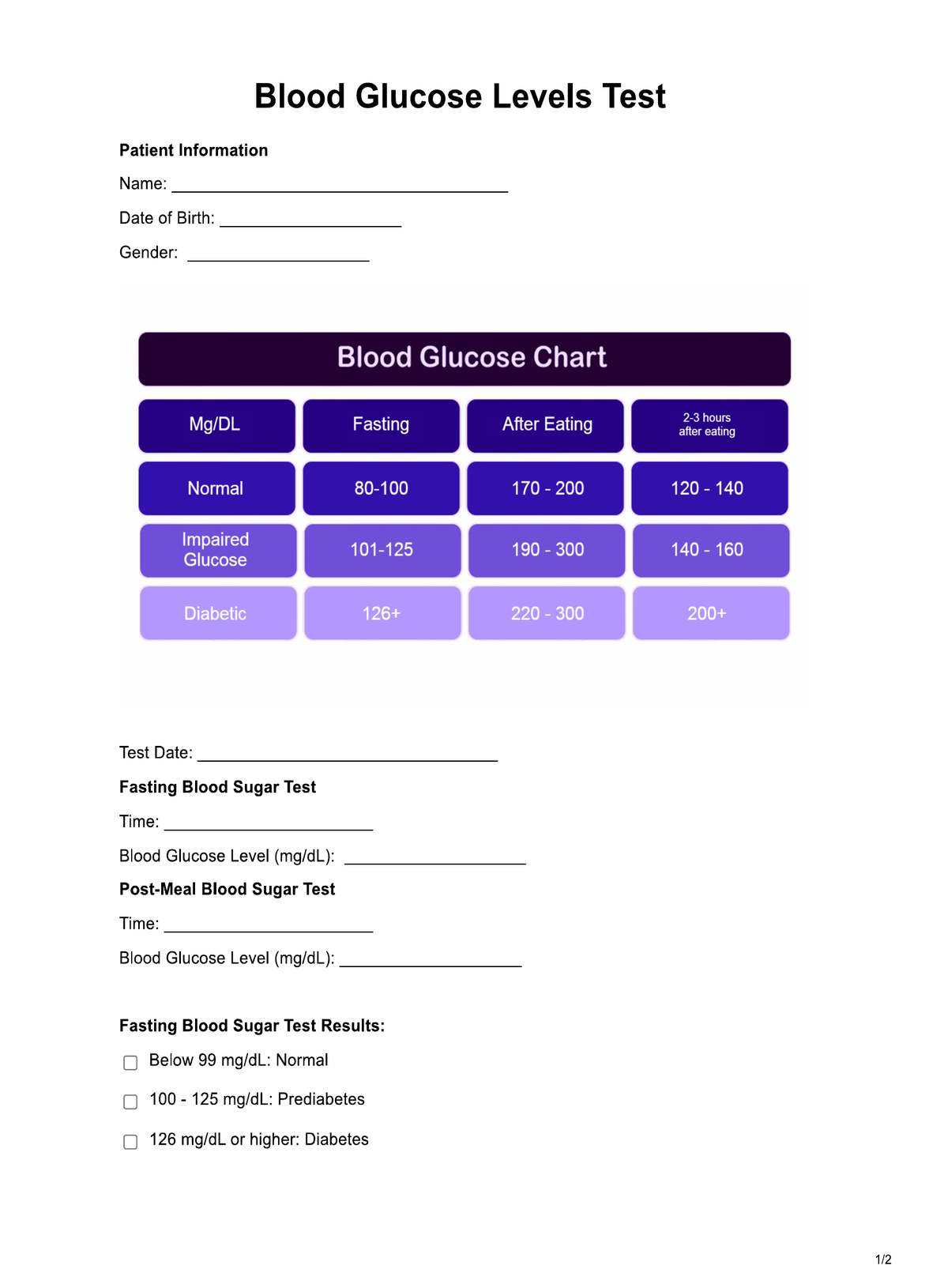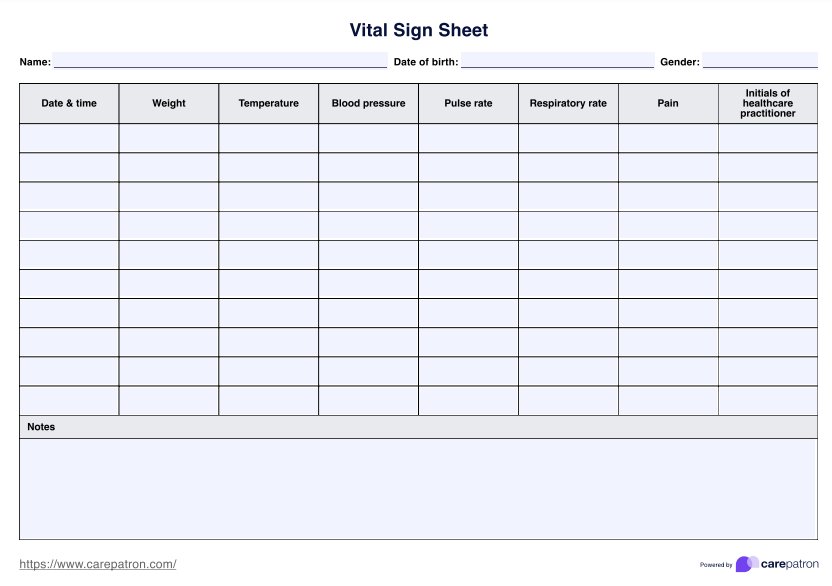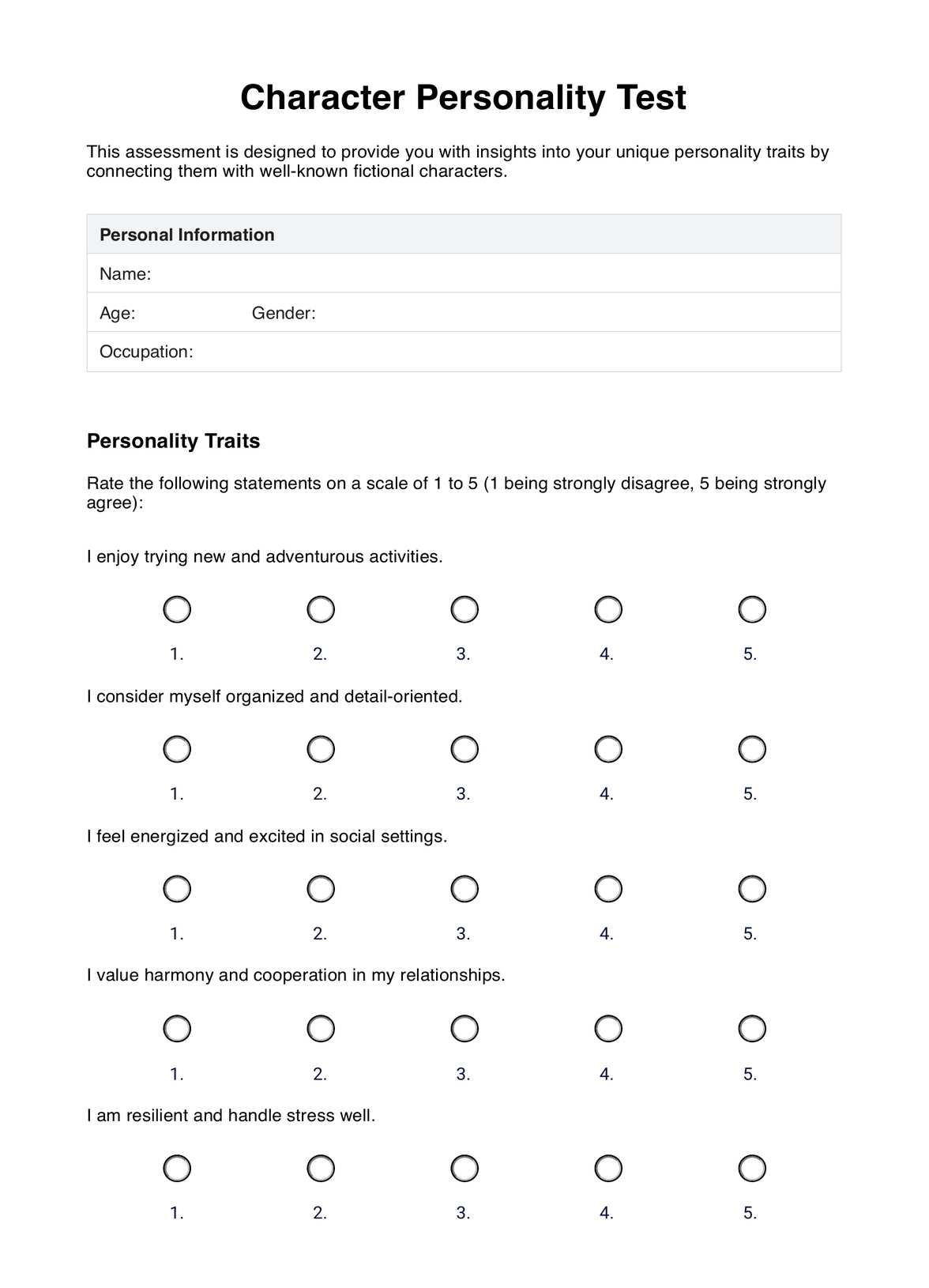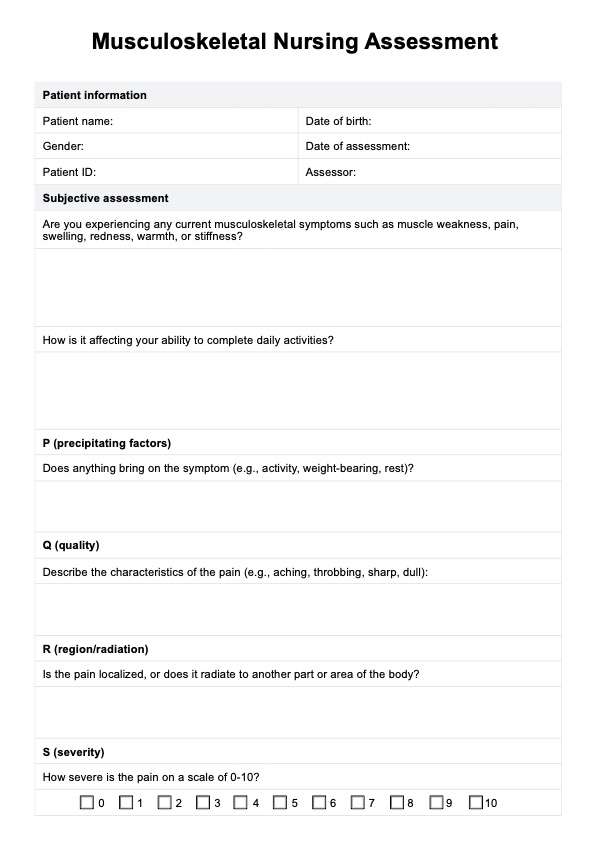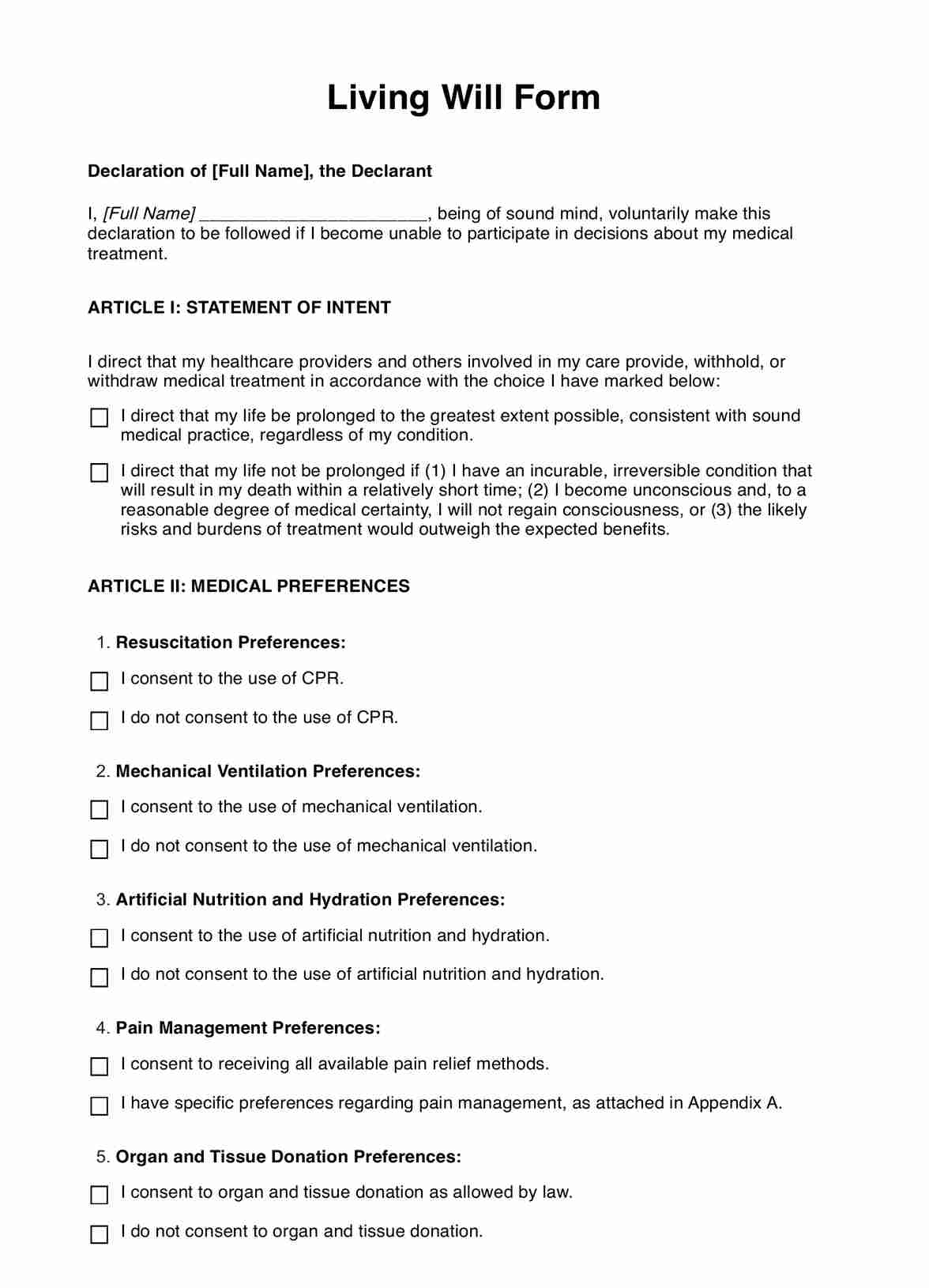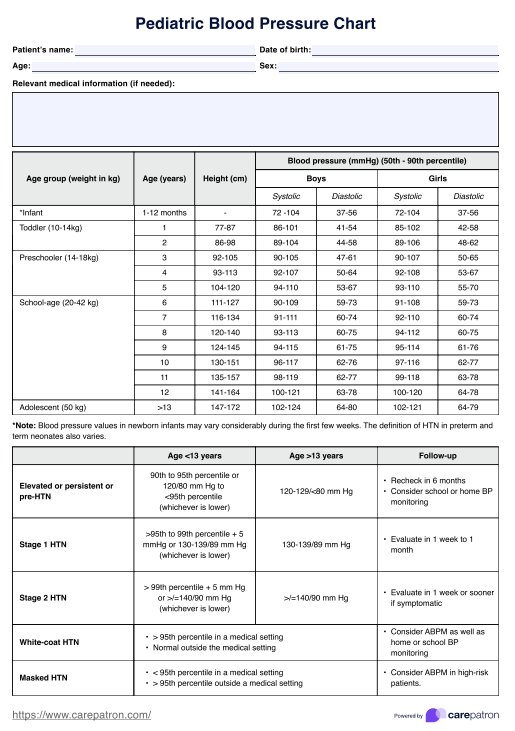Neurocognitive Test
Evaluate your cognitive health comprehensively with our Neurocognitive Test, providing insights into memory, attention, problem-solving, and more.


What is neurocognitive testing?
Neurocognitive testing, often synonymous with neuropsychological testing, is a comprehensive evaluation aimed at assessing various aspects of brain health and function. These tests delve into cognitive skills, processing speed, spatial abilities, and executive functions, offering a nuanced understanding of an individual's neurocognitive function.
Covering domains like memory, problem-solving, and reaction time, these assessments are vital tools administered by healthcare professionals to gain insights into a person's cognitive strengths and weaknesses.
Conducted by healthcare providers, neurocognitive testing plays a crucial role in diagnosing conditions such as traumatic brain injury or concussion. The results help establish baseline cognitive performance, track changes over time and inform treatment decisions.
These assessments are particularly valuable in understanding how a person processes information, problem solves, and executes daily tasks. Neurocognitive testing contributes significantly to the diagnostic and treatment landscape by identifying cognitive abilities and areas of difficulty, facilitating a more personalized approach to cognitive health.
Neurocognitive Test Template
Neurocognitive Test Example
What does neurocognitive performance testing assess?
Brain function
Neurocognitive performance testing includes an assessment of overall cognitive abilities and brain health. This involves examining how well the brain functions in various domains, including problem-solving, reasoning, and critical thinking. The test helps identify any abnormalities or irregularities in cognitive functioning that may indicate underlying conditions.
Processing speed
This component measures the speed at which an individual processes information. It evaluates how quickly someone can understand and respond to stimuli, providing insights into cognitive efficiency and responsiveness.
Language tests
Language tests assess an individual's language skills, encompassing verbal communication, comprehension, and expression. This part of the assessment helps identify any challenges or strengths related to language processing.
Attention and executive functioning
Neurocognitive testing gauges attention span and executive functions, which include higher-order cognitive processes such as problem-solving, decision-making, and cognitive flexibility. Understanding these aspects of cognition provides valuable information about an individual's ability to focus and manage complex cognitive tasks.
Short-term memory
The evaluation of short-term memory involves assessing the capacity to retain and recall information over a brief period. This is crucial for understanding how well an individual can process and remember information in everyday situations.
Coordination and motor skills
This component assesses physical coordination and motor skills. It provides insights into an individual or child's behavior and ability to perform tasks requiring cognitive and motor coordination, contributing to an overall understanding of functional abilities.
Verbal and visual memory
The verbal and visual memory assessment explores an individual's capacity to remember and recall information presented in both verbal and visual formats. This is essential for understanding memory functioning across different modalities.
Adaptive functioning (behavior)
Examining adaptive functioning involves assessing how well an individual can adapt and function daily. This includes evaluating behavioral aspects such as interpersonal skills, emotional regulation, and the person's ability to navigate social situations. Understanding adaptive functioning is crucial for tailoring interventions and support strategies.
How is neurocognitive function evaluated?
Neurocognitive function is evaluated through a combination of comprehensive assessments that target various cognitive domains. The evaluation typically involves a series of standardized tests and tools designed to measure specific aspects of cognitive functioning. Here's a breakdown of the evaluation process:
Baseline assessments
Initial assessments establish a baseline of cognitive abilities. These may include general cognitive tests to gauge overall cognitive function and a memory test to identify potential areas of concern. You can leverage the Memory Test Template to enhance your practice and improve client outcomes. This template provides a comprehensive framework for assessing cognitive function and identifying memory issues.
Cognitive abilities
Testing covers a range of cognitive abilities, such as memory, attention, language skills, problem-solving, and executive functions. Each test is tailored to assess a specific cognitive domain, providing a detailed picture of an individual's strengths and weaknesses.
Behavioral observations
In addition to standardized tests, behavioral observations are integral to the evaluation. Clinicians observe how individuals approach tasks, handle challenges, and interact in various situations. This qualitative data helps supplement the quantitative results from standardized tests.
Specific cognitive domains
Neurocognitive testing targets specific cognitive domains, including processing speed, memory, attention span, language skills, and executive functioning. By assessing these domains, clinicians can identify cognitive patterns and potential areas of impairment.
Comparative analysis
Results are often compared to age-appropriate norms to determine how an individual's cognitive function compares to the expected range for their age group. Deviations from these norms may indicate cognitive deficits or areas that require further investigation.
Diagnostic impressions
The evaluation process leads to diagnostic impressions, where clinicians analyze the gathered data to formulate insights into an individual's neurocognitive and executive function together. This step is crucial for identifying potential cognitive disorders or conditions affecting cognitive performance.
Future tests and interventions
Based on the evaluation results, clinicians may recommend additional tests or interventions tailored to address specific cognitive challenges. This proactive approach enables the development of targeted strategies to enhance cognitive functioning or manage cognitive decline.
What happens during a neuropsychological evaluation?
- Clinical interview: The evaluation often begins with a detailed clinical interview. The neuropsychologist gathers information about the individual's medical history, psychiatric history, current symptoms, and any relevant factors affecting cognitive function. This helps provide context for the assessment.
- Standardized testing: Neuropsychological testing includes a battery of standardized tests designed to assess specific cognitive functions. These tests cover memory, attention, language skills, problem-solving, executive functions, and spatial abilities. The selection of tests depends on the individual's symptoms and referral questions.
- Behavioral observations: During testing, the neuropsychologist observes the individual's behavior, including their task approach, problem-solving strategies, and emotional responses. Behavioral observations provide valuable qualitative insights to complement the quantitative data from standardized tests.
- Psychological and emotional functioning: The evaluation may also include assessments of emotional and psychological functioning. This can help identify any emotional factors that may contribute to cognitive symptoms.
- Feedback and recommendations: Following the evaluation, the neuropsychologist provides feedback to the individual and, if applicable, their family or caregivers. This includes a discussion of the assessment results, diagnostic impressions, and recommendations for interventions or treatments.
- Diagnostic impressions: The neuropsychologist formulates diagnostic impressions based on the gathered data. This may involve identifying cognitive strengths, weaknesses, and potential areas of concern related to brain function.
- Report: A comprehensive neuropsychological report is generated, summarizing the evaluation findings, diagnostic impressions, and recommendations. This report is often shared with the referring healthcare provider or professional, such as a physician or psychiatrist.
- Follow-up: In some cases, follow-up appointments may be scheduled to monitor cognitive changes over time or assess interventions' effectiveness.
Neurocognitive rehabilitation: next steps
Neurocognitive rehabilitation involves a structured approach to address cognitive deficits and enhance functioning in individuals with various neurological conditions. After undergoing neurocognitive testing to identify specific cognitive challenges, the next steps in rehabilitation typically include the development of an individualized intervention plan. This plan often involves a combination of cognitive exercises, behavioral strategies, and therapeutic interventions tailored to the individual's needs.
- Cognitive exercises: Targeted exercises aim to improve specific cognitive functions, such as memory, attention, executive functions, and processing speed. These exercises may be computer-based or involve traditional pen-and-paper activities.
- Behavioral strategies: Implementing behavioral strategies helps individuals apply cognitive skills in real-world situations. This may include strategies to manage time, organize tasks, and enhance problem-solving abilities.
- Therapeutic interventions: Depending on the underlying neurological condition, individuals may benefit from additional therapeutic interventions. Speech therapy, occupational therapy, and psychological counseling can complement neurocognitive rehabilitation efforts.
- Monitoring and adjustment: Neurocognitive rehabilitation is an ongoing process that requires regular monitoring and adjustments to the intervention plan. Periodic reassessment through neurocognitive testing helps track progress and refine the rehabilitation approach.
- Lifestyle modifications: Incorporating lifestyle modifications, such as maintaining a healthy diet, engaging in regular physical activity, and ensuring adequate sleep, contributes to overall brain health and supports neurocognitive rehabilitation.
Commonly asked questions
A neurocognitive test assesses cognitive functions like memory and problem-solving, offering insights into brain health.
Test duration varies, typically 30 minutes to a few hours, based on complexity.
It's administered for memory issues, cognitive decline suspicion, research, or baseline assessment in specific populations.


